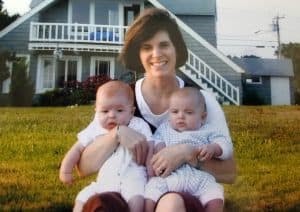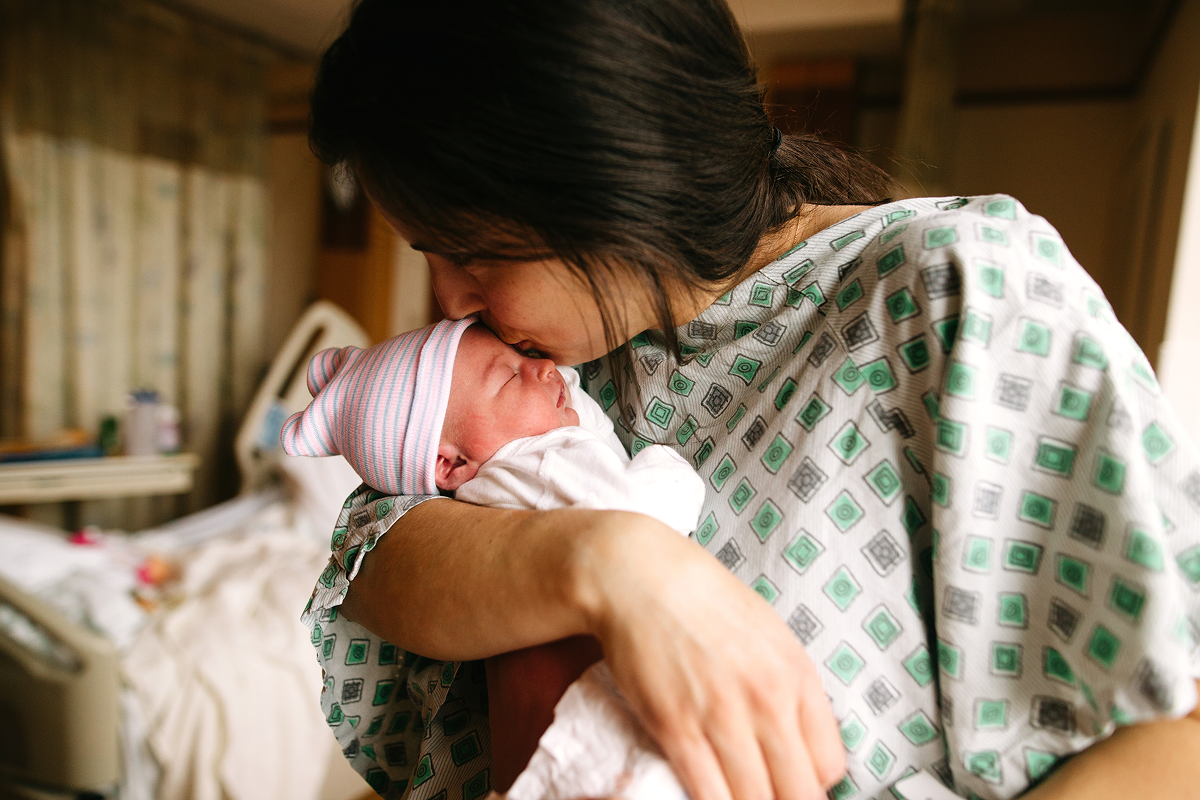99% of Maven employees say:
- They feel a sense of pride in their accomplishments.
- They are proud to tell others "I work here."
- "People here are willing to give extra to get the job done."
According to Great Place to Work, while about 60% of employees at a typical company think their workplace is great, at Maven, it’s pretty close to 100% of us. It’s why we’re honored, but not surprised, that Maven has landed near the top of the list of Best Places to Work in Health Care by Fortune and Great Place to Work US.
A mission that matters
You might be wondering what’s behind those stats, especially if you’re considering joining our team. In a word, mission. While there’s a long list of factors that create a great workplace, it begins with having a mission—one that can inspire you on a day-to-day basis. At Maven, our mission is to change the health of the world—one woman, one family at a time.
Focusing on those crucial family-building years, we want every woman and family to get the care they deserve from preconception to fertility, pregnancy, postpartum and parenting. Throughout the journey, every woman and family deserves care that is:
- Easy to access when and where it’s needed—morning, noon and night.
- Tuned to their unique needs and life context.
- Holistic, addressing all dimensions of health—physical, emotional, mental and financial.
- Continuous, coordinated and efficient.
Traditional approaches to maternal care in our country are falling far short. The U.S. has the highest maternal mortality rate among 11 developed countries, with Black women two-to-three times as likely to die from pregnancy-related causes as white women. We have too few midwives compared to OB-GYNs and a shortage of both. And postpartum support for women, including paid leave and provider home visits, is woefully lacking.
That’s where Maven steps in. Maven is the largest telehealth platform for women’s and family health, filling gaps in care throughout the entire family-building journey. Day or night, in less than 30 minutes from booking to appointment, members can interact with providers representing 25+ different specialties for fertility, pregnancy and parenting.
But to really understand the gaps in maternal care—and the power of Maven’s mission and approach to closing them—it helps to look beyond studies and stats and to stories—one woman, one family at a time. When we bring real experiences out of the shadows, when we stop hiding behind our collective desire for pregnancy and childbirth to be “normal” and always go as expected, we can have honest conversations about what women and families really need.
My maternal journey started long before I was ready for children.
My maternal journey started a long time ago and long before I was ready to have children. In my 20s, living in Boston (home to some of the country’s most respected health systems), I stopped ovulating. It had been a gradual thing over nearly a decade—cycles becoming less and less frequent until they simply ceased. I didn’t miss the inconvenience of a monthly cycle, but I wanted to know what was wrong with me. I visited an OB-GYN, and he told me I was likely too thin or too active (neither remotely true). A second doctor confirmed my blood test showed no abnormalities.
It was around that time I read a sentence in a women’s health book that would haunt me for years—something to the effect of: “Of course, if you don’t ovulate, you cannot conceive.” It was an irrefutable conclusion and so definitive, omitting any mention of what modern science might be able to do. Without giving an inch, that single sentence erased my hope and launched persistent anxiety about my potential to be a mother. I kept it to myself, a black cloud looming.
What I would learn years later, when I finally got help from a reproductive endocrinologist, is that I had polycystic ovary syndrome (PCOS), a common hormonal condition that keeps eggs from being released. And there are certainly steps that can be taken to overcome it and conceive.
PCOS affects up to 10 percent of US women in childbearing age. How many of them know what’s going on in their bodies and what it means for their chances of getting pregnant? How many of them believe they will never conceive? Unfortunately, less than 15% of women are getting preconception care that could help them navigate their diagnosis. With Maven, they could rapidly seek support and answers from experts. A Maven Care Advocate can guide a woman to PCOS education, connect her with a community of women with similar challenges, or help her access a fertility educator or reproductive endocrinologist—resources that could help eliminate years of unnecessary worry.
The best fertility care came with communication challenges.
More than a decade later, married and ready to start a family on the west coast, my husband and I sought care from a renowned Reproductive Endocrinology & Infertility Specialist at one of Seattle’s leading fertility clinics. Through a transvaginal ultrasound, my doctor confirmed my PCOS diagnosis and prescribed Clomid to stimulate ovulation. After several failed attempts to conceive, and the discovery that my husband also had fertility issues, we were told intrauterine insemination (IUI) was the next step. Due to poor communication with the doctor, however, we missed the first window for starting that process. I believe our doctor was so steeped in his specialty that he couldn’t relate to what we did and didn’t know about the protocol. Our communication was brief, stilted and confusing, and I didn’t know what I didn’t know.
After the misstep, we got back on track and were successful with IUI. Two sacs showed up on the ultrasound: we were expecting twins.
While our path to conceiving was fairly smooth and rapid, access to a Maven Care Advocate or fertility educator could have helped. When I was confused about the timing for taking medications, I could have scheduled an appointment within 30 minutes and sorted it out. Better yet, I could have learned more about the protocol at the outset and known the questions to ask our fertility doctor so that we didn’t waste emotional energy, time or money.
My fertility case was straightforward and far less complex than in vitro fertilization (IVF). For women trying to manage IVF treatments, it’s hard for me to imagine not having additional support outside the walls of healthcare.
The best pregnancy care available wasn’t enough.
Because I was pregnant with multiples, the fertility clinic referred me to the University of Washington Medical Center’s Prevention of Prematurity Program, which meant I would get more than two times the average number of provider visits—and at one of the top hospitals in the country. I wasn’t sure I needed special support; my mother had sailed through her pregnancy with twins, and I was completely ignorant of the risks involved.
Indeed, my pregnancy proceeded without incident well into the second trimester, when suddenly the situation changed. At week 19, I felt my first contractions, and by week 25, the ultrasound showed my water could break at any time. Nurses told me I was “in a really bad spot”—babies born at 25 weeks have a 50% chance of survival. And so my life changed: bed rest, Terbuatline every three hours to tame the contractions, short showers, and no trips downstairs. My HR manager at my employer cut me off from doing any work.
What I wasn’t prepared for was the profound loneliness, anxiety and fear that settled in as I settled into my bed for at least eight weeks. I felt isolated and exhausted. Vivid nightmares about losing the babies became the norm. Week 28, my mental state took another hit when my doctor shared his thoughts candidly. “I have to be brutally honest with you,” he said. “This is a very scary situation.” I cried all the way home.
And the challenges kept coming. Around week 32, high blood pressure, weight gain and protein in my urine led to a diagnosis of preeclampsia, a condition associated with PCOS. Blood pressure medicine was added to my regimen in careful balance with the Terbutaline. At week 33, I was hospitalized. Not only was Baby A breech, but his cord was hanging below his body (umbilical cord prolapse), which meant I was headed for an emergency cesarean section should I go into labor. During my 11-day stay at the hospital, I witnessed a roommate lose her premature twins at 25 weeks. She hadn’t received the same level of care I had.
I was fortunate. With lungs deemed sufficiently mature, the babies were delivered by C-section at week 35—two tiny boys weighing a combined 9.9 lbs. And after just a week in the NICU, they came home. An indisputable success story.
But no one knew the extent of my mental struggles throughout my pregnancy. I needed help while bedridden both at home and in the hospital, and there were no options. Today, Maven members can talk with mental health providers or psychiatric nurse practitioners when they need to, from anywhere.
The challenges continued—but postpartum care was lacking.
New challenges made it difficult to cope:
- A severe allergic reaction to the Oxycodone pain medication covered me in hives for two unbearable weeks, making it even harder to care for my infant boys.
- I had no understanding of the pain associated with a C-section, probably exacerbated by gaining more than 50% of my original body weight during the pregnancy and being in bed for 10 weeks.
- Baby A and I wound up back in the hospital as his temperature plummeted to 92 degrees. A spinal tap, IV, more pricks, and more sleepless nights in a room shared with other families and beeping machines.
- And then months of nearly sleepless nights and a level of exhaustion I hope never to experience again.
- Above all, a debilitating anxiety emerged: intrusive, uncontrollable thoughts about extreme harm coming to the boys that I couldn't prevent.
I focused on my boys, barely able to care for them. I was far too overwhelmed to get care for myself, and I was in no shape to drive to an appointment had I found a mental health provider, sleep specialist, or doula to talk to. (I had already crashed our new minivan in a grocery store parking lot due to lack of sleep.) My one postpartum visit with my family practice doctor six weeks after delivery focused exclusively on my physical health, not my emotional or mental health challenges. I didn’t feel comfortable talking with friends or family about my acute anxiety; I had worked too hard to protect my babies during pregnancy and didn’t want anyone questioning my ability to care for them.
Access to a Maven Care Advocate, doula, psychiatrist, sleep specialist and other providers from the comfort of my home, day or night, would have made a tremendous difference in one of the most difficult times in my life. It’s a big reason behind my decision to join the company and support its mission.

Maven is changing the health of the world—one woman, one family at a time. Explore our resource center for more insight on the difference we're making in the family-building journey.
Ready to get started with Maven?
See how Maven can support working families, retain talent, and reduce costs

Activate your Maven account today
Maven members have unlimited access to 24/7 care and 30+ types of providers. Check to see if you have access to Maven providers and resources today.
Explore Maven

.png)




.png)

.png)

